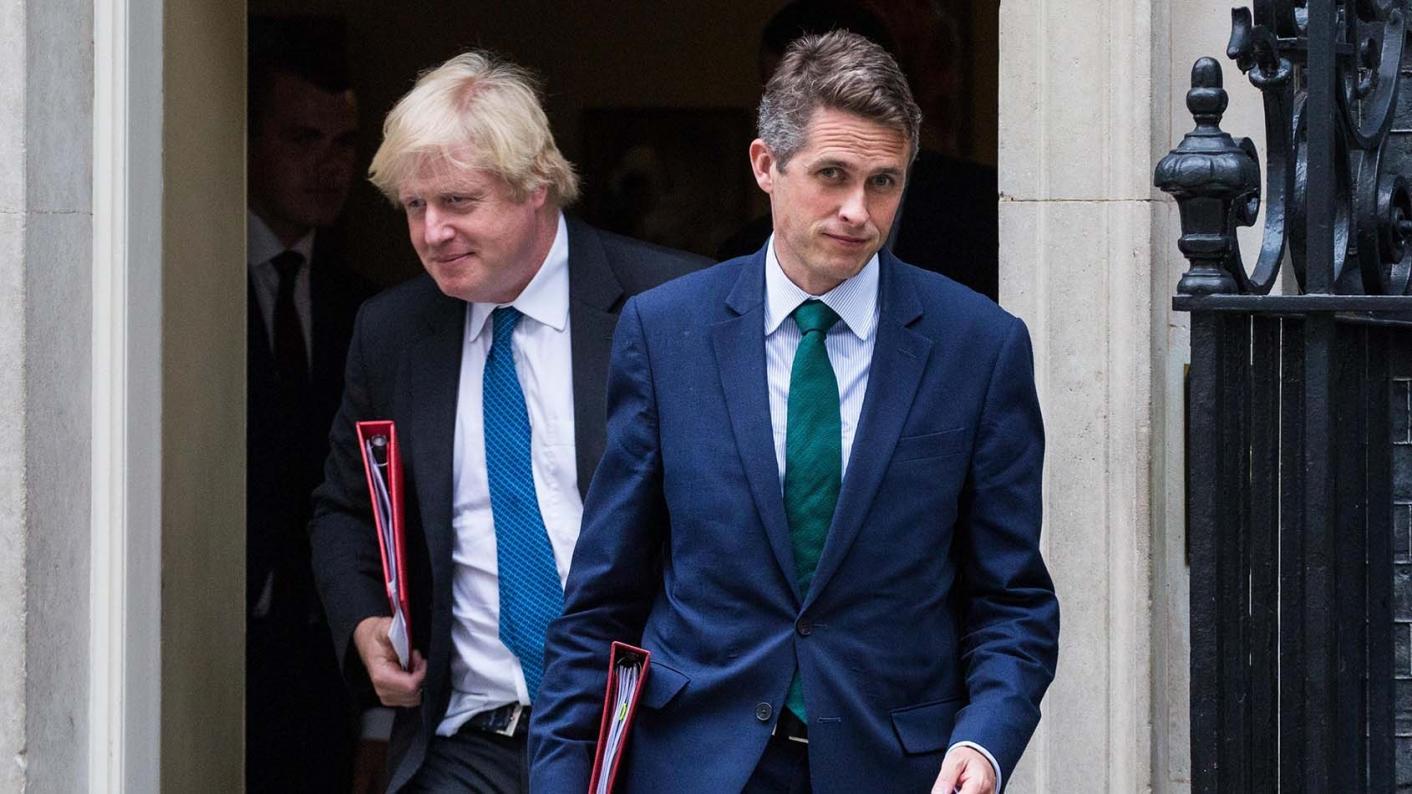 |
| Gavin Williamson (R) with Prime Minister Boris Johnson (Image: TES) |
In 2015, I argued that a Conservative government would never find a way to woo young people when they were excluded in key investment announcements and cut life-saving services. Fast forward five years and the Tories continue to find ways to really peeve off our youth.
What has the government done this time? In my eyes, the ministers are guilty for trying so hard to say to students that they're on their side, to then achieve the total opposite. When the Covid-19 pandemic began, it was clear that the health and education systems were to be severely tested. Thankfully, for the time being, the NHS has gone through the past six months without feeling overwhelmed or in a position of collapse. Of course, the Health Service faces challenges over the coming months, with a possible second spike of Covid-19 cases, an expected backlog of mental health and cancer referrals and the start of flu season, which killed more than 20,000 people in the UK last year.
But it has been our schools that have struggled throughout this current crisis. Back in March, schools were forced to close in an instant despite initial government resistance. Exams were cancelled which almost felt like a government ploy to make young people happy about their summer holidays starting early. Yet, the announcement only created anxiety and confusion, which intensified when A-Level results were calculated by a dodgy algorithm, reportedly downgrading thousands of students. Uproar from parents and students forced Westminster to u-turn and ensured teachers were given the primary voice of their pupils' futures.
Then came the question of whether children would return to school full time after the summer holidays. It is clear now that this is the case, but with localised lockdowns occurring in different parts of the UK, there is never a guarantee that schools will remain open - this depends on the terms of the lockdowns. There is also no guarantee that when a school closes, it'd be done with prior warning.
All this could have been avoided. Had schools been given more time to prepare for a pandemic, teachers could prepare the delivery of virtual lessons better and ensured that pupils had the resources to continue their education at home without missing important lessons. They could have even found a way to facilitate GCSE and A-Level students to take their exams, meaning their final grades would be reflected on performance, not prediction. The rest of Europe were ready in February, the moment the World Health Organization raised alarms, and you don't hear stories about their education systems falling apart.
As a result of this mess, young people are missing out on the chance of fulfilling their true potentials. Yet at the same time, I wouldn't point the blame solely on Education Secretary, Gavin Williamson, who has practically been the only minister able to defend the government's decisions in public during this summer period. True, it's his job to improve the education system, even during unprecedented times. However, without clear direction and guidance from 10 Downing Street, Williamson wouldn't have found himself in the sticky situation he finds himself in now.
Education was a secondary focus for the government. The Tories' initial key focus was to ensure the economy didn't tank. Today, the UK is in recession but actually, the figures could have looked a lot worse, had it not been for the freedom Chancellor Rishi Sunak was given. The furlough scheme and 'Eat Out To Help Out' proved extremely popular and potentially steered many organisations away from oblivion for the time being.
These have made Sunak very popular, but I question how his actions in recent months ultimately benefitted young people. Not only that, but he and the Treasury have other challenges to contend with, including the increasing desire by employees (particularly those with families, i.e. not necessarily young people) - and employers - to adopt a work from home culture. BP plan to close its London headquarters as the firm recognises its offices aren't being used as they use to. Sunak may not think this is a major issue now but empty High Streets and buildings can see even more job losses, and the economy sink that much lower in the long-term.
Whether the working from home trend will last, I can guarantee that if it did, it will cost young people dearly. As someone under 30, I consider some of my colleagues to be my closest friends. You can't properly acquaint with new colleagues via Zoom. Where else, other than school, will young people make friends that aren't family members? You can argue Scouts or Girl Guides, but their futures are uncertain too - and have been for a while.
The so-called 'new normal' is hindering the future of our children. And while we should be focusing on preserving their futures, we are instead in uproar when they breach Covid-19 guidelines. Selfish some may appear to be, but what else are they going to do? There is so much PlayStation they can play, or Instagram to browse. Not every child has access to a laptop or a tablet to be educated at the same pace as those who have. Not all have gardens to embrace the outdoors, or live near acres of open space. Their confidence are at an all-time low and the government can do so much more to secure their prospects. Downing Street can start by not relying on Gavin Williamson or Rishi Sunak to perform miracles. Young people may not vote Tory in their droves, but that shouldn't stop a Conservative government form measured strategies that allow young people to thrive in a post-pandemic world.
Comments
Post a Comment